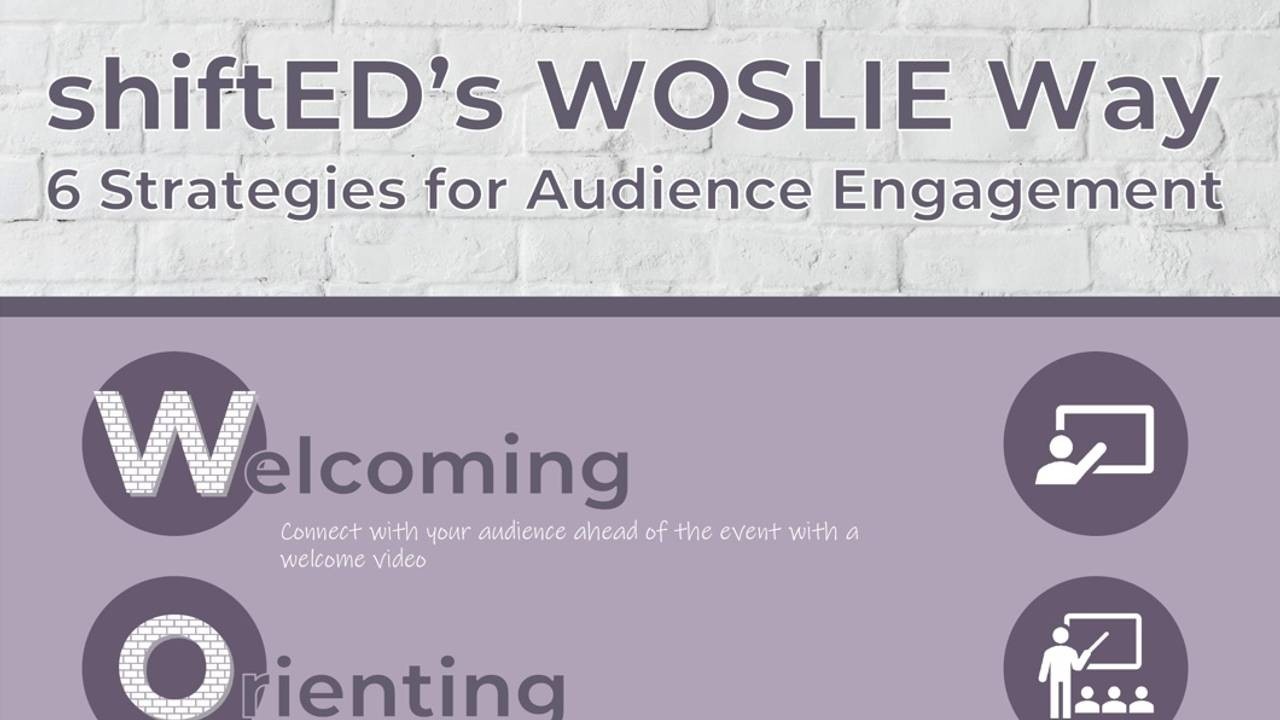Practical Tips. Useful Advice.
Sign-up to be the first to receive notification of new posts!
Leveraging AI for Presentations and Communications

Curious about the future of presenting in the context of Artificial Intelligence (AI) and various applications that can save you time and elevate your awesomeness? Read on. Whether you are creating formal presentations, delivering speeches, or any other form of communication, AI can be a game-changer.
We don't know about you, but some of our clients find the process of creating presentations to be time-consuming and sometimes even daunting. From brainstorming ideas to designing visually appealing slides, it can be a lot to handle. And let's not forget the pressure of delivering a compelling message that resonates with your audience. That's where AI comes in.
AI has revolutionized many aspects of our lives, and presentations are no exception. By harnessing the power of AI, you can automate the design process, transforming your ideas into eye-catching slides with just a few clicks. No more spending hours tweaking the layout or choosing the right fonts – AI...
Creating an online course? Here’s what you need to know - Part IV

Beta Testing
Hurrah! Your online course is complete!
So, now what?
The first thing to do once you have a completed course framework is to make sure that it all works and flows properly. When it comes to online courses, you’re not only looking to make sure that it actually works, (the technology and software are functioning as desired), but you will also want to make sure that the content flows properly, makes sense to your target audience and yields the results you had intended and are promoting.
Although it can be tempting to launch right away, the benefits to testing before launch are plentiful and should be thoroughly considered.
These include:
- The ability to understand how the flow of the course will work in real-time
- Seeing and reacting to actual results and transformations within your students
- Collecting testimonials or case studies suitable for launch and promotional messaging
- Understanding the degree of...
Creating an Online Course? Here's What you Need to Know - Part III

Part III - Production
In this third installment of our Creating an Online Course series, we’re going to be chatting all about the best practices for producing your content and then in Part IV, we will discuss how to incorporate beta testing models to ensure your course runs smoothly when it’s time to launch!
If you haven’t yet read Part I and Part II of this series, we highly recommend going back and getting those under your belt first so the tips and tricks we chat about in this article make more sense.
Let’s hop right in!
So now that you’ve put all of the content together in a manner that flows properly and meets your learning outcomes, it is time to film, record, and edit your online course.
For many, this is the most intimidating phase of online course development. Depending on the nature of your course, this may include getting in front of the camera, which can be daunting for many.
Before we get to filming though, let’s...
Creating an Online Course? Here's What you Need to Know - Part II

Part II - Facilitation
In Part I of this series, we discussed the boom of online learning, the benefits of challenges that most course creators and students face and the best practices for preparation and development of your course.
With those foundational pieces in mind, let’s talk about how to best facilitate your course material to ensure that you are delivering an inclusive, engagement-friendly, and educationally impactful experience for your learners.
Facilitation - How to Get Started
When it comes to the actual facilitation of your online course, there are a number of areas you are going to want to focus on, including:
- Securing the Tools of the Trade
- Creating a Comfortable and Inclusive Environment
- Outlining Clear Goals and Expectations
- Offering Behind the Scenes Support
- Fostering Participant Communication
- Including Opportunities for Engagement
- Facilitating Forward Movement
Within this article, we will go through each of these areas with recommendations on how to best...
Creating an Online Course? Here’s What You Need to Know!

Part I - Planning & Development
The Boom of Online Learning
As we all know, the last 2+ years have brought about many changes (read challenges) when it comes to how we do business and more specifically, how we train and learn. That said, it has also offered a number of growth opportunities in areas where it previously didn’t seem plausible. While that doesn’t make the hardships of the last few years disappear (far from it), it does open up some thought for where we can go from here, especially when it comes to online education and training.
While the pandemic certainly skyrocketed the boom-like growth within online learning, virtual events and the overall enhancement of virtual facilitation, the online education industry was actually already experiencing significant growth and adoption in the years leading up to it.
As a result, learning and streaming platforms come to the plate in a big way, as you can see in the graphs below that demonstrate the...
The Importance of Feedback

The Importance of Feedback
When we’re learning a new skill or enhancing existing skill sets, one of the most important parts of that learning curve is feedback. Honest feedback helps individuals to learn and grow in a fashion that is supportive and appreciative. For many, feedback serves as an important motivator for growth and expansion, allowing the recipient to gain real-time constructive points to help improve their performance.
Understanding how we are perceived by others is paramount when learning a new skill, especially one in the field of communication.
The best feedback takes place when the provider is actively listening, analyzing and offering the best solutions for improved performance. Improved focus typically leads to improved results, making feedback an essential mechanism to effective public speaking.
The benefits of offering constructive feedback
At shiftED, we know that offering constructive and positive feedback is the cornerstone to...
Is Futurism the Next Step for Subject Matter Experts?

Do you find yourself asking how to create agency for the future?
Do you struggle with how to best utilize the wealth of knowledge that you have dedicated your career to building?
Do you frequently ponder the future of your industry? Your career? Your business?
If you answered yes to any of these questions, you’re not alone.
In fact, these questions are becoming more and more common in our chats with colleagues, students, and leaders alike, and are being asked of educators and thought leaders globally. Given the leveling of the virtual playing field over the last few years, the future of learning is in flux. Not only has the playing field shifted, the players have too, so what does that mean for you, as a Subject Matter Expert (SME) and your legacy of knowledge?
The people you’ve worked with, the problems you’ve solved, and the success you have cultivated all have a place within your knowledge legacy. We talk a lot about cultivating that...
7 Tactics to Building Audience Engagement into your Online Presentation

If you’ve worked with us in the past, you’ve likely heard us mention the WOSLIE Way. If you haven’t, you’re probably wondering what it is.
WOSLIE is an acronym for six critical strategies for activating audience engagement during your presentations - whether they are online, in person, or a hybrid of both. While shiftED formulated the strategies, it is up to the presenter to determine how best to implement them, based on their audience, their content, their comfort and experience level, and other important factors. After we introduce these principles during our workshops and courses, we discuss practical applications for incorporating them based on specific participant scenarios. We believe there is no ‘one-size-fits-all’ approach to presenting, and take a heuristic view with our training and coaching. Because most of our workshop and 1:1 coaching clients have been primarily online for the past two years, the conversations have been dominated by...
7 Misconceptions about Online Presenting

The virtual learning industry is on a variable upswing. This isn’t surprising given the push to make everything more accessible as we face year three of this global pandemic. Everything from youth dance classes to group support programs have migrated to the virtual landscape and it has created a much more level playing field for virtual learning and professional expansion.
With increasingly user-friendly platforms, minimal tech setups and a much more educated and accessible audience, the move to online course creation is a buzz with activity. We have noticed this trend making waves with our senior executives as they look for ways to expand their offerings or round out their careers with a legacy-inducing bang.
However, with development and expansion also comes doubt and trepidation. We often hear from our participants that moving into the virtual learning space is intimidating and seems unrealistic, but that’s simply not true. That’s why...
The WOSLIE Way for Audience Engagement

All too often, online presenters are in a one-way conversation during which they push out a bunch of information to a group of silent audience members. This can happen when presenters experience internal and external barriers, such as self-confidence and familiarity with the technology.
The good news is, there are a host of practical strategies that are quick and easy to incorporate in your next presentation.
When I teach my Online Presentation Secrets workshops, I share the WOSLIE Way, shiftED’s methodology for activating audience engagement. When I coach individual clients, we peel back the layers to get to the root of their barriers and then we work together to determine specific WOSLIE tactics to incorporate in their presentations, based on their audience and their objectives...and their comfort level.
WOSLIE is uncomplicated, but it can be as nuanced as your experience warrants with literally...


